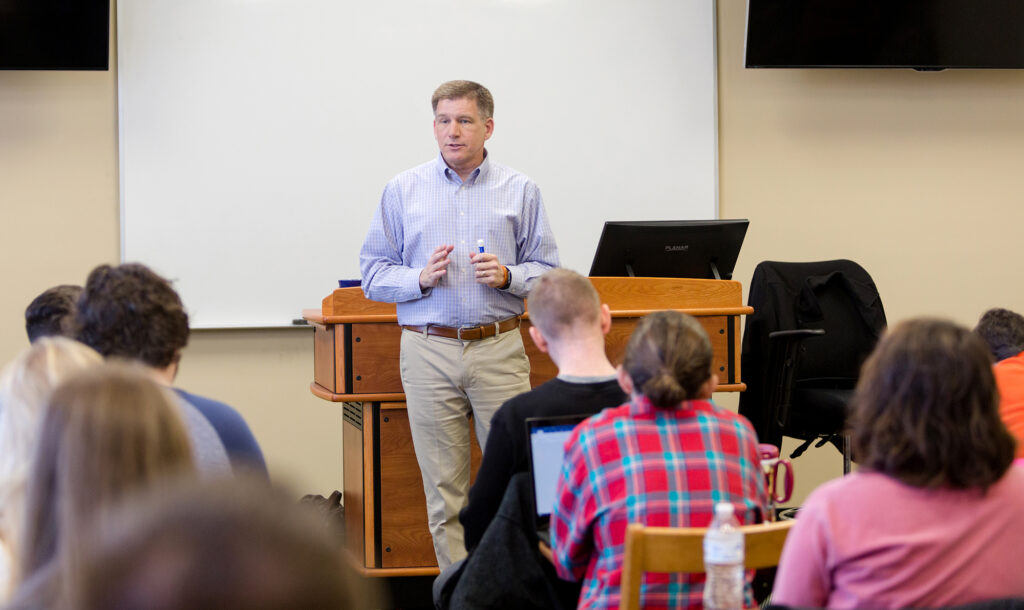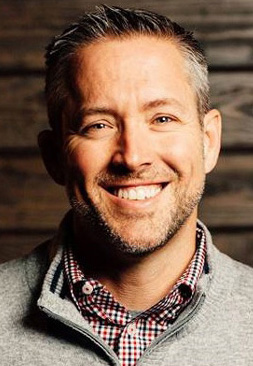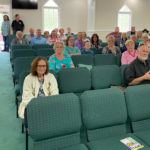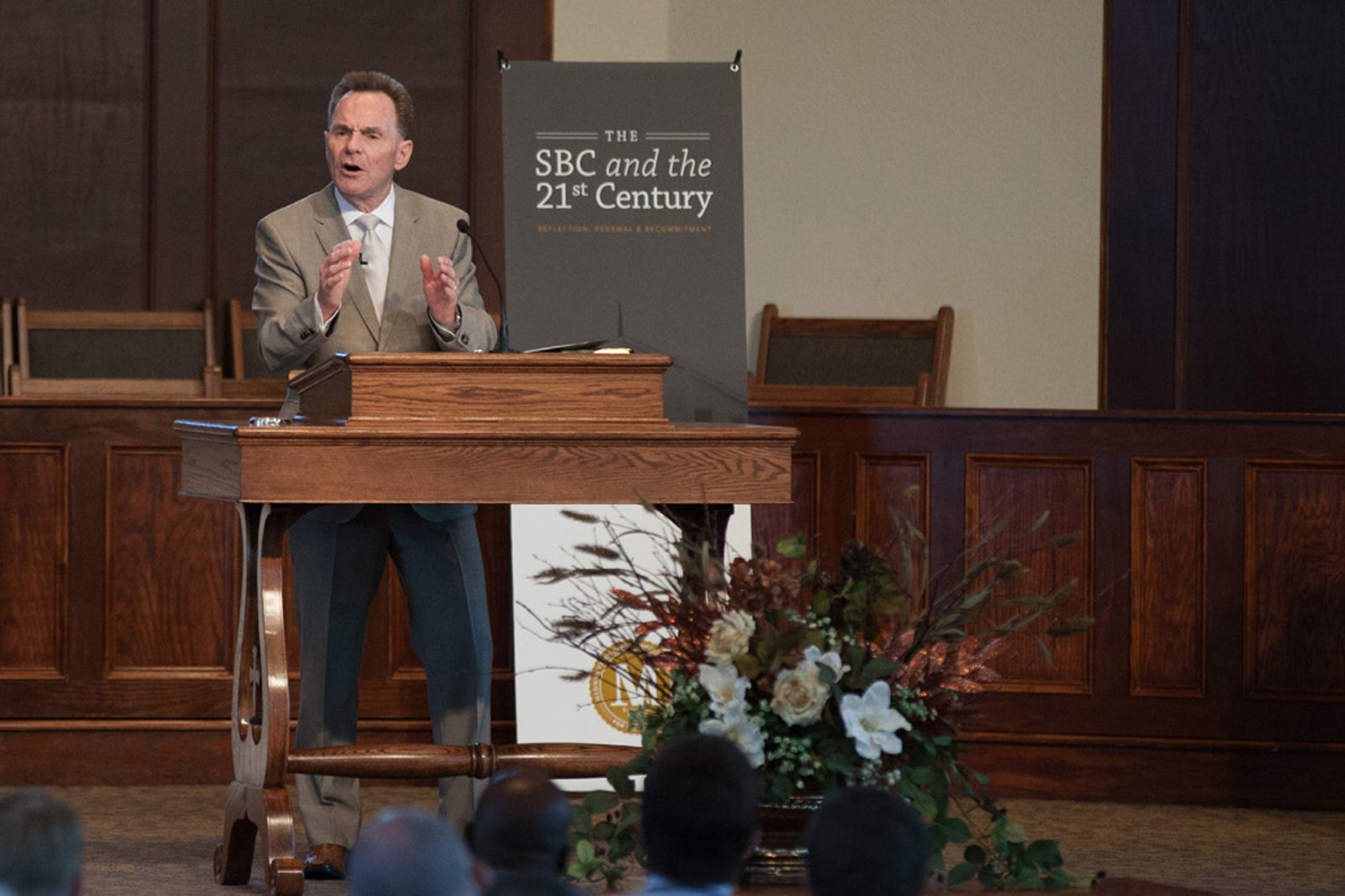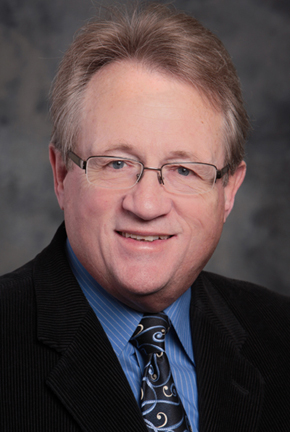
WAKE FOREST, N.C. (BP) – I have been a Baptist for all 53 of my years alive. A Baptist church shaped my understanding of the Gospel in early years. During and after college, I served on staff at Baptist churches. A Baptist church prayed for and supported me during my time living in Scotland for Ph.D. studies. I served a church in Scotland that was founded by Baptist missionaries in the 1970s. I have been a member of a Baptist church since my return from the UK to become a professor at a Baptist seminary in 1998. To borrow a phrase from the apostle Paul, I am a Baptist of Baptists.
Every one of those churches cooperated with 40,000 other churches of like faith and practice to send missionaries, plant churches, train ministers and encourage one another in Great Commission living. The Cooperative Program (CP) is a genius solution to the problem of like-minded churches working with one another to fund the missionary enterprise. Whereas many Baptists in America created missions societies which would raise funds to send missionaries around the world, Southern Baptists determined to pool their resources, appoint members of their churches to serve as trustees of boards and agencies, then send their own members through those agencies to fulfill the Great Commission. It is not a perfect system, but it is certainly an effective one.
Today I serve in a unique position, as both an employee of a CP-funded seminary and a pastor of a CP-giving church. Southern Baptist churches own and operate six seminaries, each of which exists to train pastors, missionaries and other Christians for faithful ministry to those same churches. A portion of every penny given to Southern Baptist causes through the CP helps ensure that a young man called to ministry from a church in central Mississippi, east Texas, Southern California or New England has an opportunity for theological education and ministry formation for service in a Southern Baptist church.
As a professor at Southeastern Baptist Theological Seminary for more than 25 years, I have trained thousands of men and women seeking theological education. Southern Baptist churches have no greater sources of well-educated and rightly formed ministers than the seminaries they fund through regular Cooperative Program giving. Every semester when new students wander in my classroom, either in person or virtually, I start with two simple statements to them – 1) You are being trained to think like a minister, act like a minister, and serve like a minister. And 2) There are men, women and young people in churches around the world that need you to give everything you can in your training so you can most effectively help them to find themselves in Jesus Christ.
Besides my role as a professor, I am also honored to help pastor a Southern Baptist church which supports these missions efforts by cooperating with other churches of similar faith and practice. Our church receives the Lottie Moon Christmas Offering, Annie Armstrong Easter Offering and the North Carolina Missions Offering, along with a host of other offerings for local missions efforts. But central to our strategy for participation in the progress of the Gospel is our regular giving to cooperative efforts through the Cooperative Program. Our church could never send 5,000 international missionaries, plant a thousand new North American churches or train 15,000 seminarians. But we can give from our resources to a common source that helps make those things, and more, come to fruition. And when that time comes that men and women from our church sense a call from God to pursue ministry or missions, we will share in the work of the CP by sending them to seminary and then to the church or mission field. We give when we cannot go, we give so others can go and we give to make a way for us to go.
Leading a church into missional living means helping them give to Gospel causes along with helping them participate directly in Gospel causes. In every classroom, I see men and women who have been sent for training, eager to serve Jesus anywhere He leads. Sitting in a chair where these two worlds collide gives me a perspective that I try to always keep before our congregation: You may not move across the world to become a missionary, but you can help support the man or woman just down the road who is preparing to do just that.
The Cooperative Program is not a way to fund a far-off organization with no connection to your church. When God calls a family from your church to missions, that family will be educated at a CP-funded seminary and sent through a CP-funded missions agency. And the next time your church is looking for a pastor, you will likely find a man who was trained at a Southern Baptist seminary through the money you gave faithfully year after year after year.
Most of the people in my church are under-informed about the mechanics of the Cooperative Program. But they are well-informed of the call to partner with churches for the Gospel. As a North Carolina Baptist Church that gives to cooperative causes, our people join that great chorus of Christians who proclaim to a needy world, “Jesus is Lord!”
Steven A. McKinion is John L. Dagg Chair of Systematic Theology at Southeastern Baptist Theological Seminary.
